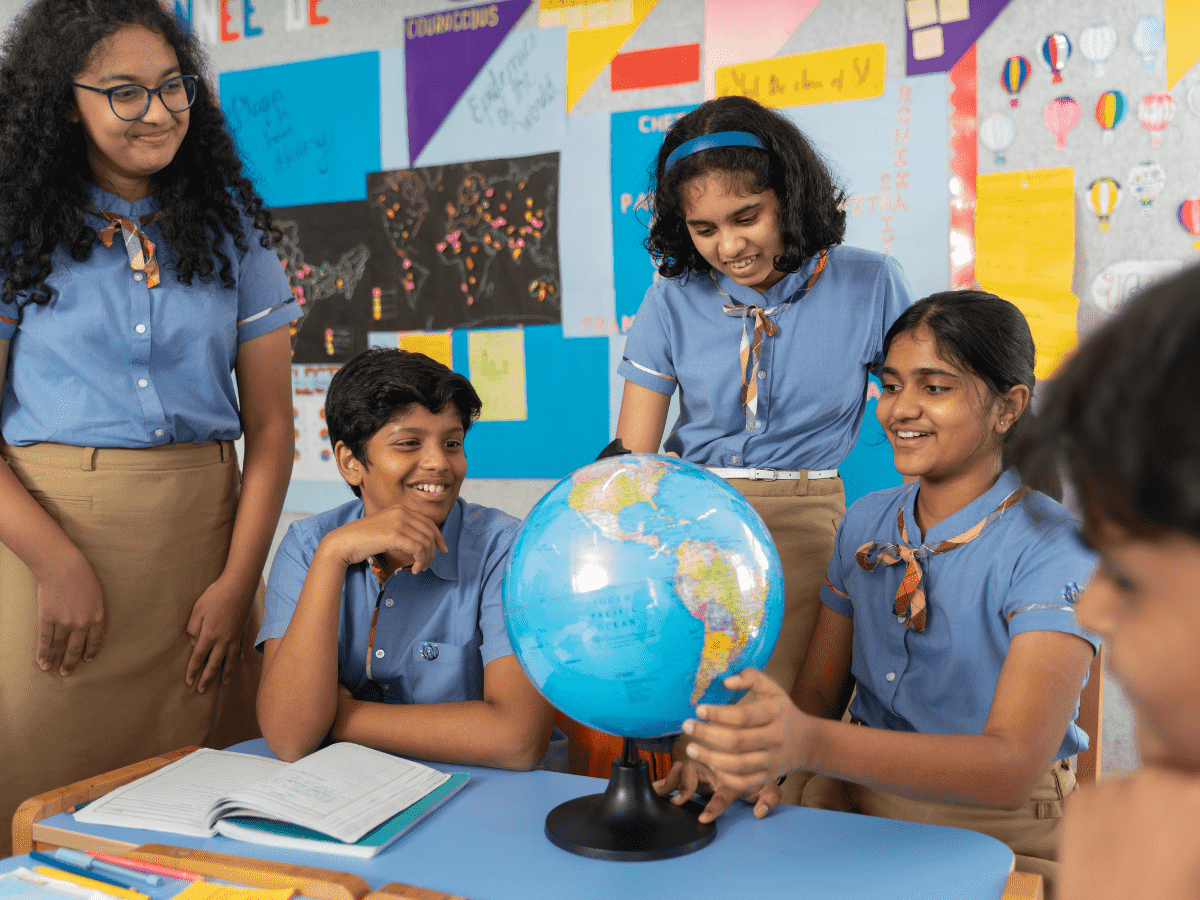Why Global Curriculum?
- 13 March 2023

Reflecting on the changes that technology has brought about, it is clear that the world has become more interconnected. This has led to an evolution in the approach to education, and it is essential in preparing the student to thrive in this new reality. Adopting an education model that exposes kids to diverse perspectives, empathy, understanding, and resilience is critical to achieving this goal.
A global mindset that values diversity, sustainability, and social responsibility is crucial. The recent COVID-19 pandemic has further emphasized the importance of resilience in education, and innovative solutions are required to ensure students have continued access to high-quality educational resources.
Building resilience in students involves helping them develop the skills and mindset needed to overcome challenges and adapt to changes. By fostering resilience in students, we are preparing them to face future challenges with confidence and determination. Critical thinking, creativity and innovation, cultural awareness, and knowledge of global challenges are essential elements of a global curriculum.
Essential Elements :
This education model promotes understanding and empathy among students, breaking down cultural barriers and promoting global harmony. It fosters global citizenship, which is essential in a world where intolerance and xenophobia are increasing.
In conclusion, adopting an education model that exposes kids to diverse perspectives, fosters empathy and understanding, and builds resilience is crucial to ensuring that students have the knowledge, skills, and values they need to thrive in the 21st century. It can create a generation of global citizens who can positively impact the world and create a brighter future for all.
– Mohd Shaik Abdulla
Communications Manager
Oakridge International School Bachupally
[/vc_column_text][/vc_column][/vc_row]